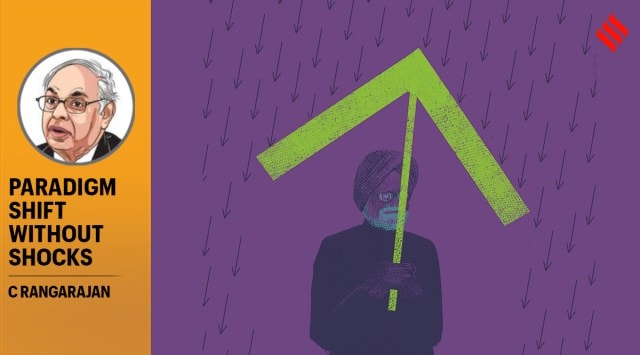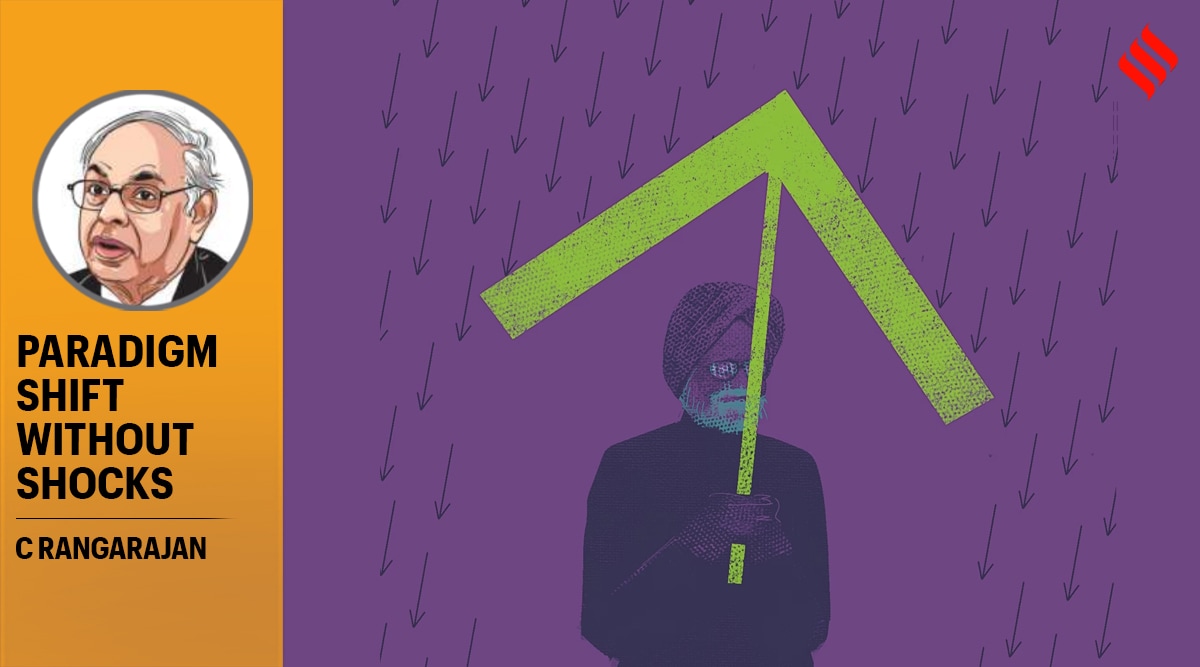

C Rangarajan
Dec 30, 2024 12:40 IST First published on: Dec 30, 2024 at 07:15 IST
Dr Manmohan Singh will go down in history as one of the ablest prime ministers of the country. As Finance Minister in the Narasimha Rao cabinet, he brought about fundamental changes in the Indian economy. The changes he introduced were revolutionary by any yardstick. They required vision and courage, and he had these qualities in abundance. As Prime Minister, he showed the same vision and courage and made India an important voice in the world.
My association with Dr Singh goes back to the late 1960s when we were both in New York — he in the United Nations and I at New York University. Later in the mid-1980s, when he was governor of the Reserve Bank of India, I was the Deputy Governor. At the time of the economic crisis of the 1990s, which precipitated the introduction of the reforms, I was the RBI governor. We worked closely and had frank exchanges of views.
People are aware of the three major breaks we made in the economic paradigm in the early 1990s. The first was the dismantling of the wide network controls, licenses and permits that dominated the system. The second was to redefine the role of the state in the economy and the third was to give up the “import substitution” policy and be a part of the world trading system. It showed that India was willing to compete.
In the area of finance, we carried through changes which reflected the basic shift in economic philosophy. We reoriented the relationship between the RBI and the government. When I suggested ending the system of issuing ad hoc treasury bills which had the effect of automatically monetising the fiscal deficit, he readily agreed to do so because he concurred with the basic logic of the idea. One of the basic elements of the reform process was to introduce greater competition. We applied that principle to the banking system by allowing new banks to be set up by the private sector and also by reducing the share of government from 100 per cent to 51 per cent in public sector banks.
The foreign exchange market underwent a big change. By 1993, India moved to a market-determined exchange rate system. We managed the system in such a way that there were no shocks. Manmohan Singh’s strengths are not only in ideas but also in implementation.
Fiscal reforms were an integral part of the early reforms because they had an impact on restoring stability in the economy. A major part of the fiscal correction was to contain the fiscal deficit. In fact, it was the growing fiscal deficit in the 1980s that led to the crisis of 1990. Trade policy reforms which tried to bring down import duties made the task difficult. A balancing act had to be performed. Tax reforms, which meant lowering rates and widening the tax base, had to be undertaken with care. The concept of reducing fiscal deficit took a more formal shape under the Fiscal Responsibility and Budget Management Act.
The reforms undertaken in the early 1990s had a big impact when Manmohan Singh became prime minister. Between 2005-06 and 2007-08, India’s real growth was in excess of 9 per cent, a remarkable achievement. After 2011-12, the growth declined but that was partly cyclical.
In the early part of his career in the government, Dr Singh was a believer in planning and the importance of the role of the state. However, even at that time, he was a strong advocate of export promotion. He did change his views. That is why we call the reforms a paradigm shift. In the final analysis, what is important is benefit to the country. His emphasis on efficiency did not take away his concern for the vulnerable groups. The Rural Employment Guarantee Scheme is one good example of how he tried to take care of the deprived. The National Food Security Act was another example. Given the production and procurement capabilities, he asked the Committee that he set up under my chairmanship to formulate a scheme of entitlements for the vulnerable. We modified the scheme suggested by the National Advisory Council but kept in greater part the spirit of the recommendations. There is a mistaken impression that reforms ignored equity considerations. That is not correct. Dr Singh always regarded growth and equity as the two legs with which a nation must walk. In the execution of certain types of projects like roads, he also thought in terms of public-private participation.
most read
When we look back at his life, several facets strike us as impressive. He was intellectually firm and a man of ideas. He was also a man of implementation. These qualities were to the fore when he guided the country through difficult times. Of course, no description of Manmohan Singh is complete without reference to his humility. He was courteous to the extreme.
Today, there is talk about India becoming a developed country by 2047. Perhaps that is possible. Manmohan Singh laid the foundation for this. Had he not altered the direction of the Indian economy in 1991, India would not have been on the road to becoming a developed nation.
The writer is former Chairman, Prime Minister’s Economic Advisory Council and former Governor, Reserve Bank of India
Why should you buy our Subscription?
You want to be the smartest in the room.
You want access to our award-winning journalism.
You don’t want to be misled and misinformed.
Choose your subscription package


